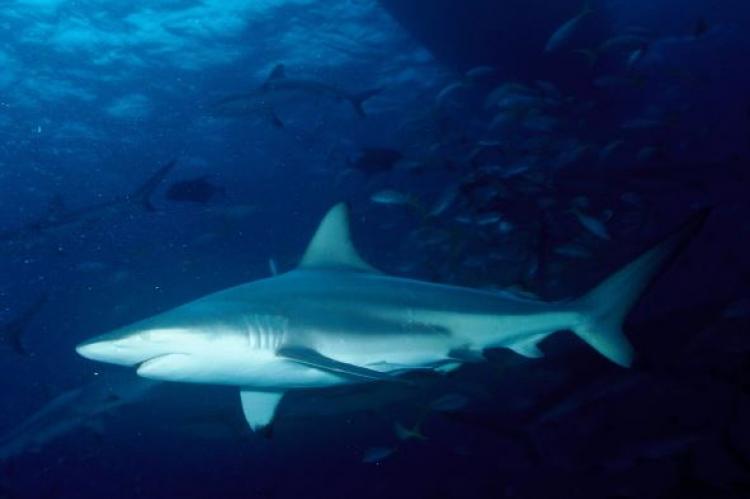Sharks influence fish communities at coral reefs
A study by Australian scientists have revealed that the presence of sharks have an impact on the number, species and size of fishes at coral reefs.
The research team from University of Western Australia arrived at this conclusion after a study involving two coral reefs. At one of the reefs (Scott Reef), shark hunters had been legally permitted to hunt sharks while the other reef (Rowley Shoals) was situated in a marine protected area.
Based on their observations of fish communities at the two reefs, the researchers discovered that the removal of the larger sharks might lead to an increase in the population of smaller shark species like the whitetip reef shark. This species was 570 percent more abundant at Scott Reef, compared to Rowley Shoals.
In addition, small and medium-size fishes (typically eaten by reef sharks) were 200 percent more common in the shark-fished areas than the marine reserve.
“These results suggest that removing sharks from coral reefs may not lead to a classic ‘trophic cascade’, which is a series of knock-on effects that start at the top of a food web and percolate down to the bottom, but rather alter fish communities at every level,” Dr Shanta Barley.
“This is worrying, because fishes at the bottom of the food web may maintain reef health by eating algae.”
The study also found that fishes were more diverse when sharks were abundant. "There is debate around whether predators are the ‘guardians’ of biodiversity or whether they actually reduce diversity by ‘eating’ species to local extinction, but our research suggests the former,” Dr Barley said.
As a natural experiment, there are limitations to what conclusions can be drawn from the study. However, such approaches are one of the few techniques researchers can use understand these elusive animals.
For co-author Professor Jessica Meeuwig, a question that remained was whether the sharks primarily influenced reef fish communities as predators or competitors. “Regardless, the evidence is growing that when we lose sharks, we lose coral reefs as we know them,” she said.


